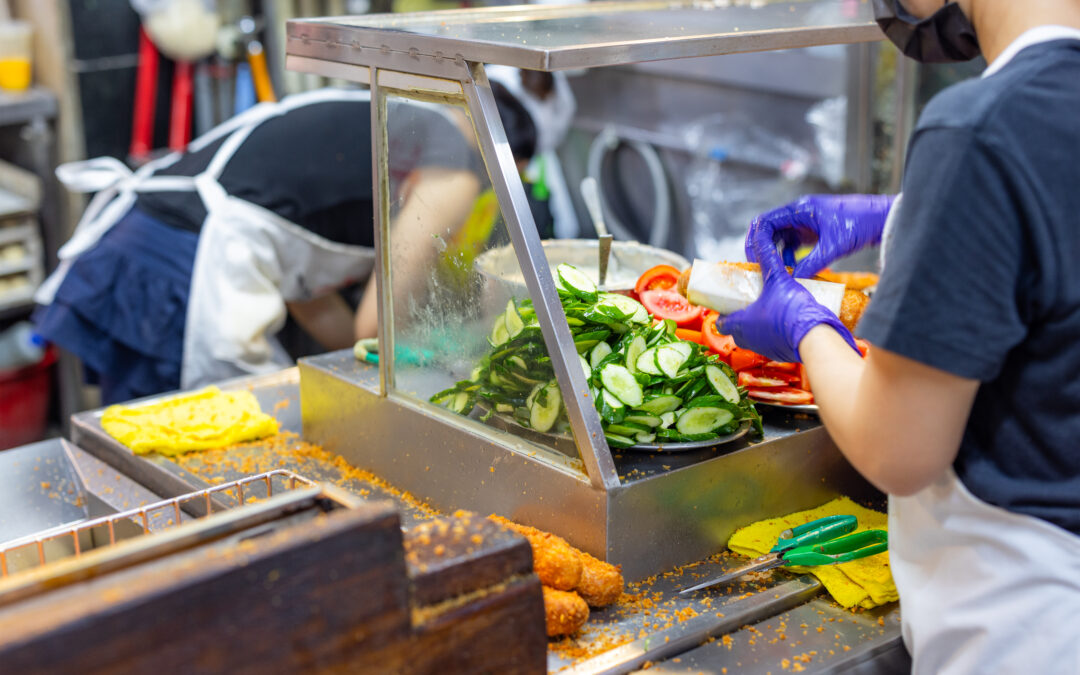According to the United Nations World Tourism Organization (UNWTO), there are approximately 1.4 billion international travelers annually—56 times higher than the 25 million annual jet-setters in 1950.
While escaping to a foreign land makes for exciting excursions and lifelong memories, having dietary restrictions can hamper your dining experience. Imagine traveling as a vegan and the cook accidentally adds meat, fish or animal byproducts to your dish. It could be an unwelcome surprise if you’re already unsure what you’re eating.
Of course, it would be worse for travelers with celiac disease to spend an expensive night at a local hospital after seeking medical care for an allergic reaction.
You deserve to have a good trip without worrying about every meal. Keep these three helpful tips in mind when traveling abroad with dietary restrictions.
1. Research Dining Options Beforehand
When searching for flights and a hotel, consider also looking up restaurants that cater to your dietary restrictions. There are bound to be plenty of choices in the cities you’re visiting, but it may require a little research.
For instance, traveling as a vegetarian is likely easier when visiting a country like India since plant-based eating is rooted in Hindu scriptures and traditions. Approximately 81% of Indian adults limit meat consumption, while 39% classify as vegetarian.
Look at online reviews and search feedback by inputting keywords related to vegetarian or gluten-free offerings. Perhaps the restaurant website says it offers gluten-free dishes, but a previous customer was less than satisfied with the options—that’s something you’ll want to be aware of.
Downloading apps that compile diet-friendly restaurants is another way you can prepare. Scour social media and online forums as well, since travelers are sure to leave comments about their dining experience.
The country’s Reddit community (also called a subreddit) might be another place you can search for suggestions. Someone in those forums might even be able to translate essential phrases related to your food restriction for you to use.
Reach out to your hotel once you book your rooms to communicate your restrictions beforehand. This can be done with restaurants, as well. When asking directly, you’ll always get the best information about if they can safely meet your dietary needs.
2. Carry Allergy Cards and Photos
Traveling as a vegan, vegetarian or as someone with another type of food restriction is particularly difficult when there’s a language barrier.
Be sure to bring a laminated allergy card listing what you can and cannot eat. For instance, travelers with celiac disease should make sure their allergy cards list bread, pasta and other wheat products as a no-go.
You should also check to see if the country you’re visiting has policies regarding gluten-free food labeling. In Canada, food must contain less than 20 parts per million of gluten to be certified gluten-free. Otherwise, products must clearly declare gluten ingredients on the label.
If you don’t wish to carry a laminated allergy card with you everywhere—particularly if the list is pretty long—then consider downloading an app to your phone. Some apps even translate your food allergy to other languages for more accessible communication.
Bringing pictures of what vegans can’t eat—with an “X” drawn on the front—may be another way to convey your dietary restrictions. For instance, if you’re a vegetarian, showing a waiter a picture of a crossed-out steak will help them understand you require a meatless menu offering.
3. Prepare for Medical Emergencies
It’s vital to pack medications that aid digestive problems when you have a food restriction. Also, consider always carrying these medications with you instead of leaving them at the hotel.
About 8% of travelers who get sick during trips have to seek medical care, so you’ll want to be prepared. Purchasing medical coverage with your travel insurance may be a good idea if your food restrictions are a severe allergy or sensitivity.
Suppose you do end up with a medical emergency because of gluten consumption. Knowing you can access a doctor or prescription is critical.
While most gluten-related digestive issues pass on their own, severe diarrhea, vomiting or abdominal pain may require a trip to the emergency room. Without the proper medical coverage for international travel, you could end up with a hefty bill.
Dine With Confidence While Traveling the World
You can travel the world without worrying about eating something that goes against your dietary restrictions. Careful planning, a bit of research and utilizing as many tools as possible will allow you to dine with confidence.


